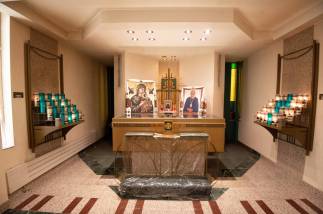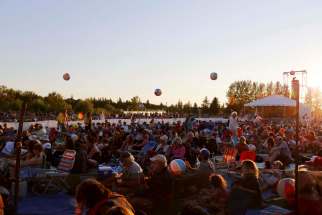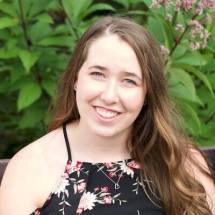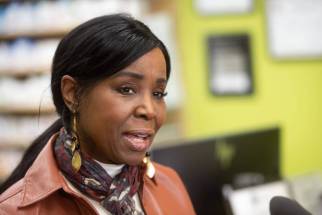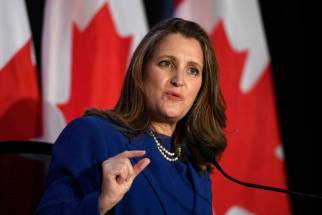Speaking in tongues Whether translating for refugees and journalists in more than a dozen languages or telling the terrible truth at rallies in Krakow’s market square every day at noon, expat Ukrainian is a man on a magnificent mission
Read this article for free:
or
Already have an account? Log in here »
To continue reading, please subscribe:
Monthly Digital Subscription
$0 for the first 4 weeks*
- Enjoy unlimited reading on winnipegfreepress.com
- Read the E-Edition, our digital replica newspaper
- Access News Break, our award-winning app
- Play interactive puzzles
*No charge for 4 weeks then price increases to the regular rate of $19.00 plus GST every four weeks. Offer available to new and qualified returning subscribers only. Cancel any time.
Monthly Digital Subscription
$4.75/week*
- Enjoy unlimited reading on winnipegfreepress.com
- Read the E-Edition, our digital replica newspaper
- Access News Break, our award-winning app
- Play interactive puzzles
*Billed as $19 plus GST every four weeks. Cancel any time.
To continue reading, please subscribe:
Add Free Press access to your Brandon Sun subscription for only an additional
$1 for the first 4 weeks*
*Your next subscription payment will increase by $1.00 and you will be charged $16.99 plus GST for four weeks. After four weeks, your payment will increase to $23.99 plus GST every four weeks.
Read unlimited articles for free today:
or
Already have an account? Log in here »
Hey there, time traveller!
This article was published 08/04/2022 (1340 days ago), so information in it may no longer be current.
KRAKOW — In any of the 14 languages that Adrian Harasym can speak, the stories he has heard through this war will haunt him. There was the woman from Bucha, who’d hid in her potato cellar until hunger drove her to flee over streets dotted with corpses. There was the woman at a Krakow train station, who’d escaped Kharkiv with the equivalent of just $20.
Ukrainian Refugee Crisis
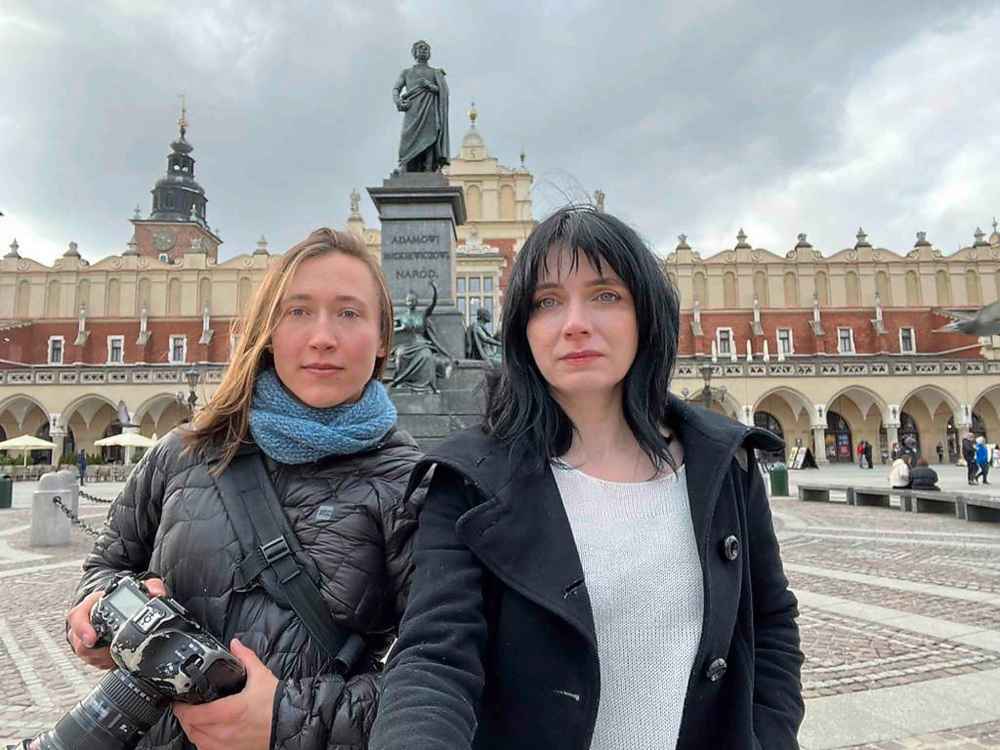
Posted:
As the world watches in horror the Russian invasion of Ukraine, and as Manitobans prepare to open their arms to refugees, the Free Press has sent writer Melissa Martin and photographer Mikaela MacKenzie to Poland to report on the largest refugee crisis in Europe since the Second World War.
She had three children, that woman. When Harasym translated her story for a Japanese newspaper reporter, the journalist couldn’t believe it. Surely, the reporter asked, you have a credit card? Something else? No, the woman replied, as Harasym translated her words into Japanese. She’d spent the rest of her money to come to Poland, and now she had nothing.
Translation is not Harasym’s job. He’s a data analyst by profession, though since the war started he has thrown himself into doing what he can to help here, in Krakow, where the world’s media have descended. A true polyglot — in the time we spend with him, we hear him speaking English, Ukrainian, Spanish, German and Polish — he has skills that are needed.
It does not come easy. Every time Harasym translates for a journalist, he hears a refugee’s story first in either Ukrainian or Russian, and then has to order it in a new language in his mind, and then he has to speak it. So in a way, he has to live each refugee’s pain at least three times. They do not leave him.
“Those stories are still in front of my eyes,” he says, speaking into a microphone.
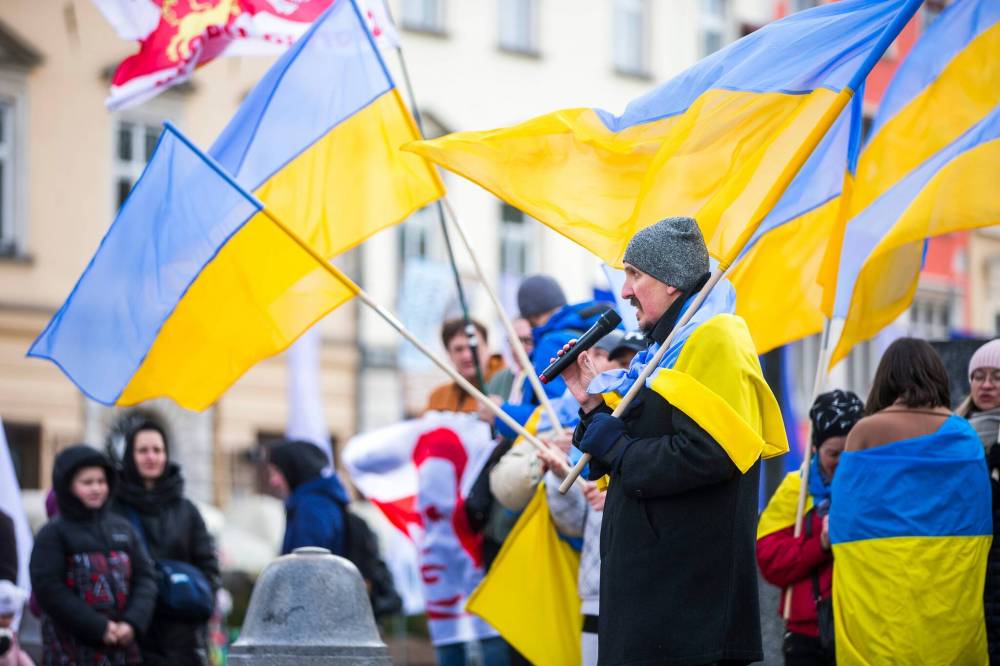
In front of him, a rapt crowd murmurs. Behind him, a bouquet of Ukrainian flags dances in the unusually biting early-spring wind, held by the dozens of Ukrainians and allies who gather here, at the Adam Mickiewicz Monument in Krakow’s spacious old market square, every single day at 12 p.m.
The rallies are raw, and impassioned, and beautifully, imperfectly human. A singer, Daria Sichkar, captivates the crowd with a voice of gold; one woman, a refugee, paints posters that she holds aloft; two teen girls shyly recite a poem they have written in Ukrainian. There are speeches in multiple languages, there are tears, there are pleas for more international action.
Before the war started, Harasym would never have pictured himself here, near the front lines of a mass humanitarian crisis. He’d led a much quieter life. Born and raised in Lviv, he’d moved to Toronto in 1996, where he pursued a career as a data analyst. Six years ago, he moved to Poland, where he started a YouTube channel to talk about languages.
It’s a hobby for him, he says, with a laugh. Some people like doing Sudoku, or something; he picks up new tongues.
The rallies started when the war did, though Harasym didn’t join until about 10 days later. His involvement, like much of the humanitarian efforts on the ground here in Poland, happened partly through love, and partly by accident; he was walking by the square one day, when he heard them chanting “NATO close the sky” in a distinct Ukrainian accent.
Harasym introduced himself to one man to correct the pronunciation: “it’s not NAH-tow,” he explained. “It’s NAY-tow.”
“He says, ‘Maybe you want to say a few words?’ I said, ‘Yeah, sure, why not?’” Harasym says. “Then I started to speak. Before, I never made a public speech in my life. Of course, in childhood, maybe I read a poem in front of people, or at church the Book of Apostles. But making a speech on my own, just from scratch, it’s a very new experience.”
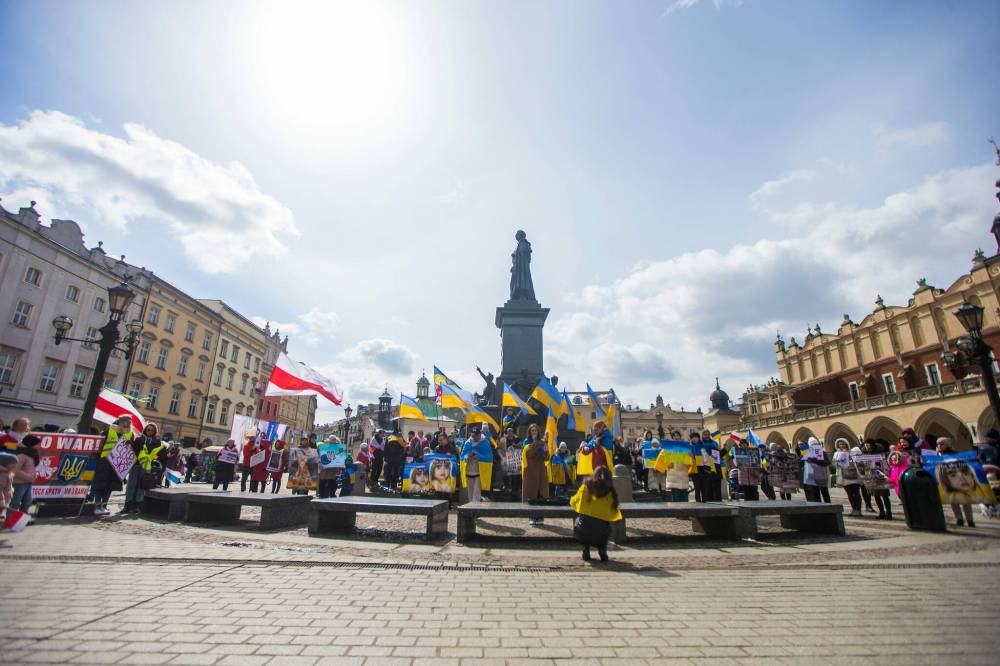
Harasym has come to the rally every day since then, acting as an English-language emcee. He talks about the terrible stories he has heard while serving as a translator; but he also talks about the talent they see every day at the rallies, all these vibrant young Ukrainian singers and poets and artists who come here to spill their hearts to passersby and tourists.
And he does interviews, over and over: with the Wall Street Journal, with European TV and radio, and with several Japanese newspapers. He’s mad at himself, he says with a chuckle, because he forgot to return a message from a reporter at Germany’s largest news site, Der Spiegel; he has some pointed things to say about Germany’s response to Russia.
Above all, he looks for the helpers. He has met many. There was a journalist from Italy, who decided to stay and become a volunteer helping refugees at the train station. There was a French doctor who arrived with medical supplies worth nearly $1.2 million. There were three ladies from Ireland, who just loaded a minivan with food and other human needs.
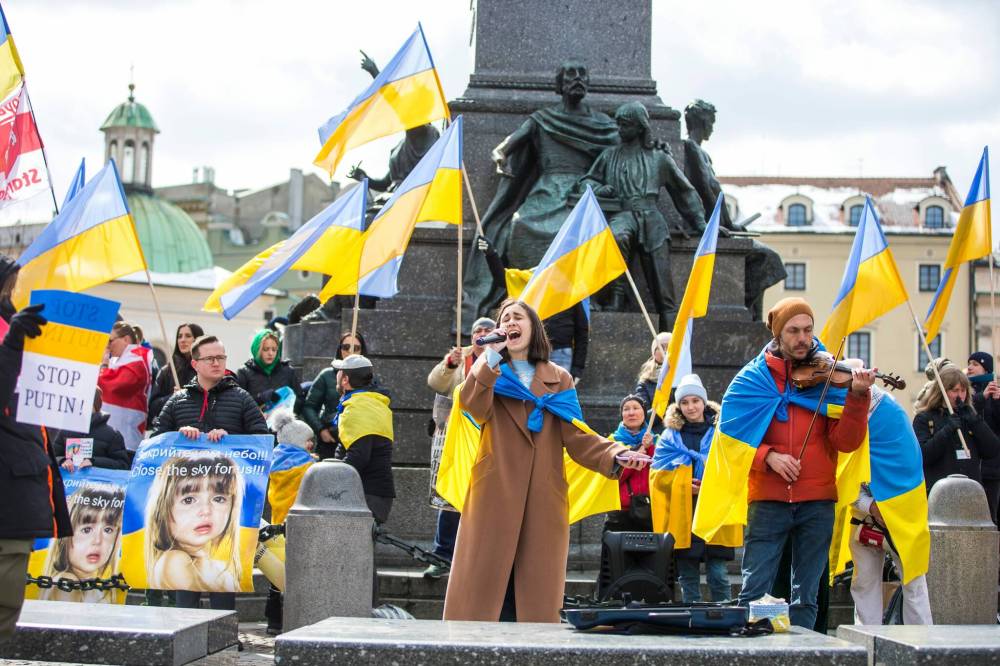
And near the end of each rally, he invites any journalists watching to come speak to him. If they need a translator, he will help them. If they need to find refugees to speak with, he will help make introductions. This is how he is keeping himself busy, he says, and this is what he is doing to keep himself steady through what is happening in his homeland.
“I didn’t know how this war would develop,” he says. “Now I think it’s a very good chance to do something good in my life. To help people, to spread the word, to actually create some press coverage for the refugees to help them, even personally. Later, I will have something to remember in my life.”

After the rally winds up, the helpers begin to find him. An American couple who has lived in Kyiv for 20 years approaches to chat; so does an elderly Polish man with a sweet smile and warm, liquid eyes. He wants us to know that he’s part of a group that has been making pancakes for the refugees at an apartment nearby, and to give us the address.
Harasym translates as long as he can, until a pair of Spanish journalists need his attention. Then, with an apologetic smile, he’s off to a new conversation, a new chance to share what he sees, to connect the world with what is happening in Poland, and in Ukraine. The elderly man, not noticing his translator is gone, keeps lovingly chatting in Polish anyway.
Just a few steps away, a group of about 20 people stand in a heavy silence. Their shoulders are draped with a new flag, a blue stripe sandwiched between two stripes of white: it’s the flag of the Russian anti-war movement. A woman steps forward and begins to speak, first in Russian and then in English: they are Russians living in Poland, she explains.
This is the morning that photographs are emerging showing the apparent slaughter of civilians in Bucha.
“We came here today not to say anything,” the woman says. “Because today, we found out about executions that Russian soldiers performed in Kyiv Oblast, at least one city. We are shocked by this and we can’t say anything to make this better. That’s why we have decided to make a minute of silence, or more than a minute of silence, for people who died there.
“For people who didn’t deserve this. For people who shouldn’t have died there, not like this.”
Over the next few minutes, the silence around the statue is broken only when someone in the crowd begins to weep.
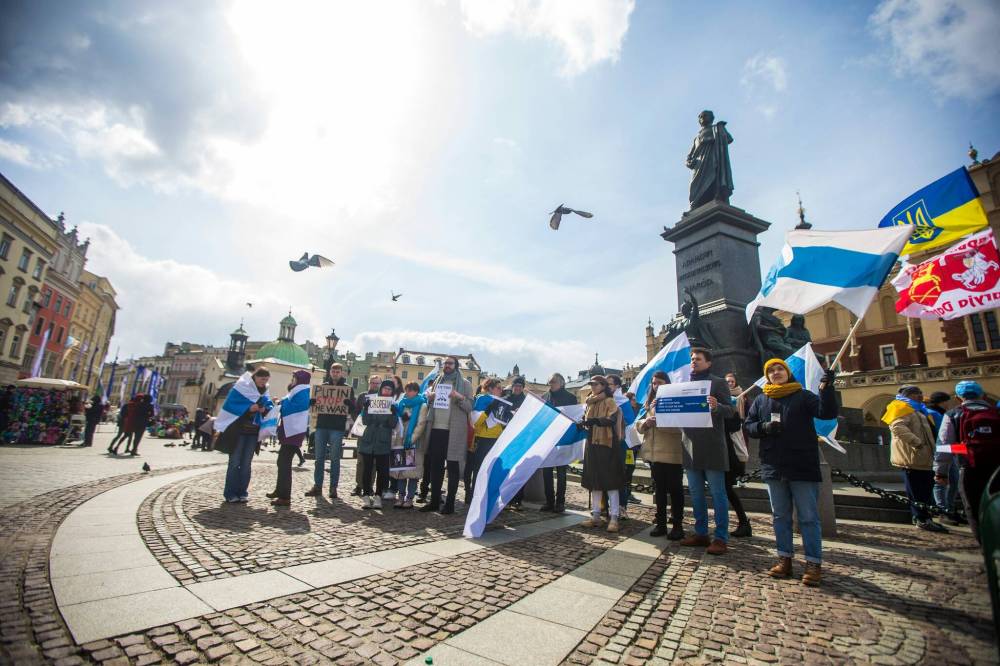
And then the gathering disperses. As people trickle away from the bronze statue at the square’s heart, I notice something affixed to its plinth; it’s a memorial to a woman, though her name is not given. It says she was born in Russia’s Krasynoyarsk region and died in Kyiv on March 23, at 42 years old.
A single white rose lies beneath her photo, which is slipped inside a plastic sleeve to protect it from the last flights of snow.
melissa.martin@freepress.mb.ca

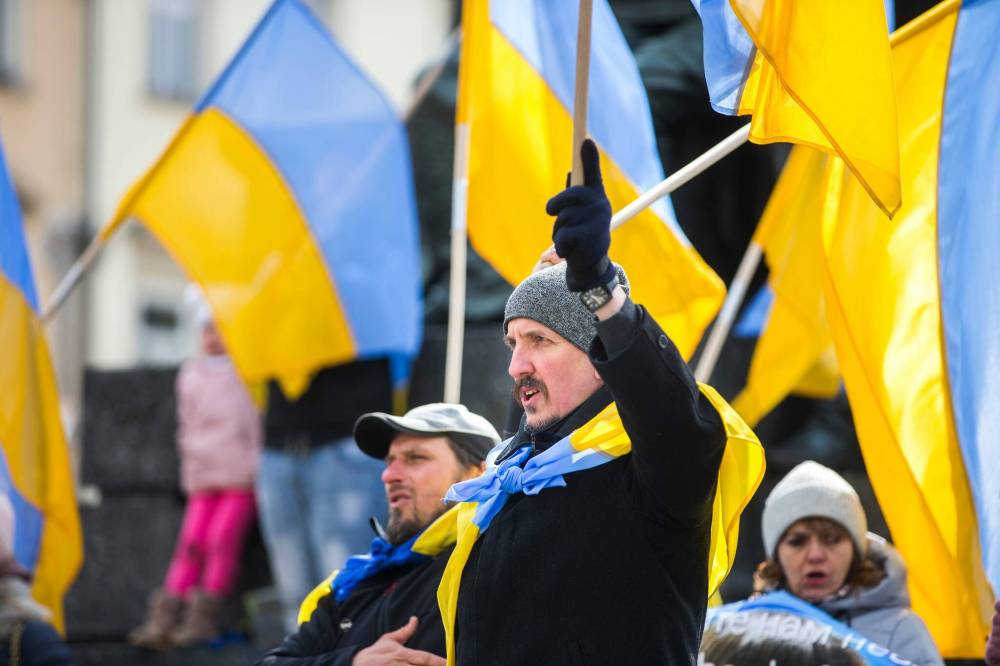

Our newsroom depends on a growing audience of readers to power our journalism. If you are not a paid reader, please consider becoming a subscriber.
Our newsroom depends on its audience of readers to power our journalism. Thank you for your support.





